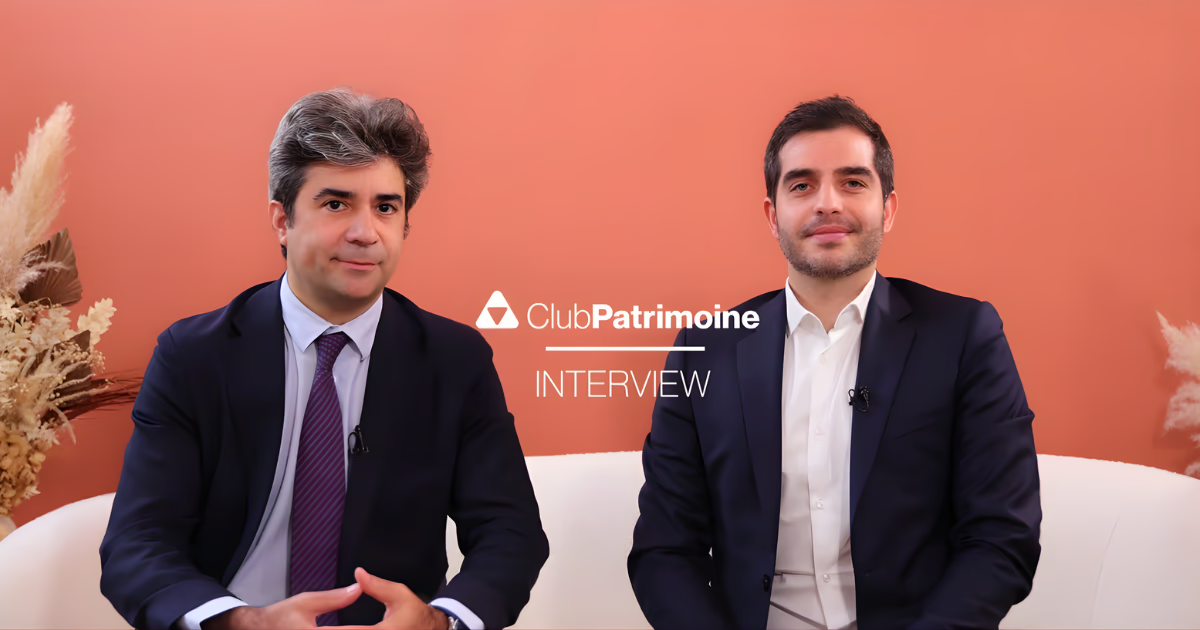➡️ Why invest in non-listed companies? Last January, Private Corner organized its annual conference on the challenges of non-listed investment in 2024. Discover the major trends in the unlisted asset market and how Private Corner's offer provides access to the expertise needed to grasp these trends.
Find out more about our unlisted investment offer by contacting our experts:
Contact our experts
What are the challenges for unlisted asset funds in 2024?
Why invest in unlisted assets in 2024? Private Corner organized its annual conference on the challenges of investing in unlisted assets in 2024. Approved by the AMF and specializing in the selection and distribution of leading unlisted asset funds, Private Corner, which recently celebrated its third anniversary, offers an institutional approach to unlisted investments to the wealth management clients of its 300 distributors. One of the evening's key speakers was Dominique Gaillard, Chairman and Founder of Armen and a long-standing expert in unlisted funds. He tells us what the major themes of 2024 will be.
Discover our private equity funds offer here
The outlook for unlisted companies in 2024
According to Dominique Gaillard, there are 3 main prospects for unlisted investment in 2024
Firstly, the consolidation of private equity players, who are moving away from specialization to become multi-strategy platforms. The latest example is BlackRock's $12 billion purchase of GIP (Global Infrastructure Partners). Infrastructure assets are very much in demand among consultants. That's the first thing, and it's a phenomenon that's going to develop a lot. And we, at Armen, take tickets in management companies to give them the equity to enable them to make this consolidation.
Then, in terms of investment, secondary and co-investment are undoubtedly the two asset classes with the best Risk/Reward at the moment, and with a lot of deal flow. Indeed, liquidity has been somewhat lacking for some time now, so these secondary players can step in to facilitate liquidity mechanisms.
And thirdly, retail. Historically, private equity was not accessible to retail investors. Today, thanks to improvements in the legal and tax environment, which has moved in the right direction in recent years, and thanks to the motivation and tools available, such as Private Corner's digitalization tools, we can now welcome retail investors in funds investing in unlisted assets.
How is Private Corner positioned? What is its added value and the depth of its offering?
According to Jacques Ittah, Founder of Wil Partners, Private Corner's approach to unlisted investment is one of democratization of the private equity product, with a very high level of access and professionalism, so as to select investment funds with an implacable methodology and historical visibility on the performance of each of France's finest teams.
According to Maxime Vanneau, Private Corner's Director of Partner Relations, through its 100% integrated, digital private equity investment platform, the management company offers a selection of unlisted asset funds that will enable its distribution partners to create a tailor-made, diversified unlisted asset allocation for their wealth management clients. The offer is structured between high-conviction and opportunistic investments. Today, Private Corner offers private equity solutions focused on major transitions such as healthcare, IT and technology, value-added industry and B2B services, with renowned managers such as Ardian and Raise, as well as funds investing in inflation-immune unlisted assets such as infrastructure, working alongside Antin Infrastructure Partners and RGreen Invest.
In conclusion, with a selection of unlisted asset funds accessible from €100,000, Private Corner has already raised €600 million in its three years of existence. This record figure demonstrates the success of its B2B2C approach, aimed at clients of independent asset managers, private banks and family offices wishing to invest in unlisted assets.
Investing in unlisted assets in brief
Unlisted investment refers to the purchase of stakes in companies, projects or assets that are not listed on a public stock exchange. In other words, these investments involve entities that are not subject to the listing and disclosure rules specific to regulated markets.
Main characteristics
- Illiquidity: one of the main characteristics of unlisted investments is their lack of liquidity. Unlike listed equities or bonds, there is no readily accessible secondary market to buy or sell these investments quickly. This means that investors may have to wait a considerable time before being able to realize their investment.
- Higher return potential: due to the additional risk associated with illiquidity and less transparency, unlisted assets often offer higher return potential. Investors demand a risk premium to compensate for these disadvantages.
- Diversification: investing in unlisted assets enables portfolio diversification, since these investments are generally uncorrelated with traditional financial markets. This can help reduce the overall risk of an investment portfolio.
- Higher risk: in addition to illiquidity, unlisted investments can present higher risks due to fewer regulations, limited transparency and greater dependence on the performance of the specific company or project in which you are investing.
3 examples of unlisted investments
- Private equity: purchase of shares in unlisted companies, often with the intention of restructuring or developing them before reselling.
- Infrastructure projects: financing infrastructure projects such as roads, bridges, renewable energies, etc., often via dedicated funds.
- Private debt: investing in an unlisted company over the long term by lending it funds, in exchange for interest and repayment of the invested funds at a later date.
Considerations for investors
Investors considering unlisted investments should carefully assess their risk appetite, liquidity requirements and investment horizon. Although these investments can offer attractive returns, they often require in-depth knowledge of the sector and rigorous due diligence. For retail investors looking for attractive investment opportunities, working with a private banking professional can provide the expertise needed to navigate the unlisted market and identify investment opportunities aligned with their financial objectives and risk tolerance.





